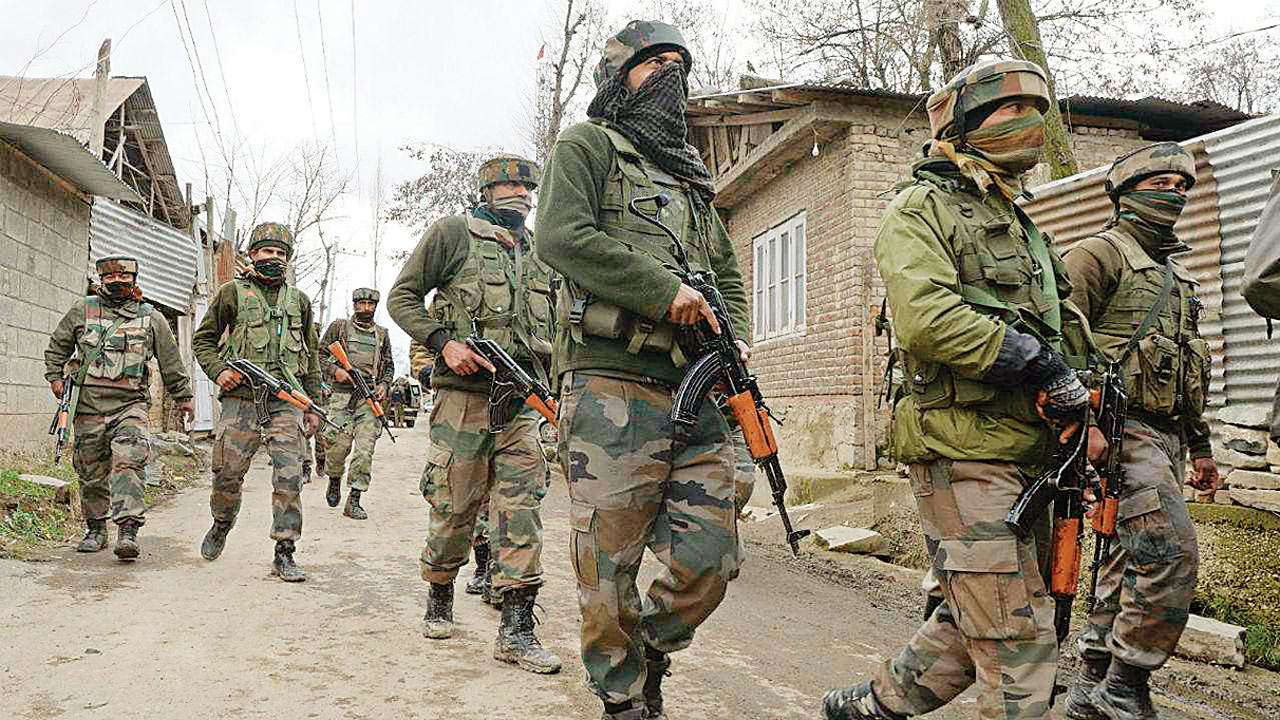
Twelve days after the Pulwama suicide bombing that left nearly 40 CRPF jawans dead, India retaliated. In the early morning hours of Tuesday, four Mirage 2000 fighter jets took out terror outfit Jaish-e-Mohammed (JeM)’s camps at Balakot, Manshera, inside Pakistani territory. On the very next day, Omar Abdullah, National Conference leader and former chief minister, gave an interview in which he said, “Tinkering with Article 370 or 35A will be disastrous for Jammu and Kashmir.” As if the timing wasn’t suspicious. But, then, what else would Abdullah say? Why wouldn’t he try to save what is akin to a hereditary “jagir” (fiefdom) of political heirs like him the Muftis?
Indeed, it is this opposition to the abrogation of Article 370 that Muslim-dominated Kashmiri political parties share. Unfortunately for them it is also what they have in common with separatists in the Valley. Actually, what Abdullah probably meant is that the repeal of this “Temporary, Transitional and Special Provision” of the Indian Constitution would be disastrous to his party. He might have added that it would also prove the undoing of all other overt, quasi, or crypto separatists who have thrived all these decades on Jammu and Kashmir’s “special status.” Resisting full integration with the Indian Union, they have given a handle to Pakistan to interfere, as also an excuse to Western powers to refer to the area as India-occupied Kashmir. Who in the world dares call Tibet “China-occupied”? Our own J&K, in comparison, acceded legally not by invasion or conquest.
A couple of years back, Jitendra Singh, Minister of State in the PMO and MP from Udhampur, dared to wonder if Article 370 “actually worked to J&K’s disadvantage.” Not only did Mehbooba Mufti condemn his statement, but Omar Abdullah went on to tweet rather ominously, “Mark my words & save this tweet - long after Modi Govt is a distant memory either J&K won’t be part of India or Art 370 will still exist.” As if it is that flimsy provision that keeps the state tied to India not the force of arms in the face of a relentless an ongoing war waged by Pakistan. Isn’t it time to retort, “Yes, Mr. Abdullah, we have marked your words but, sorry to say, you may actually have to eat them.”
Not only is J&K a part of India, but the government has at last taken steps to dilute if not challenge Article 370. On Thursday, the Cabinet approved extending reservations for SCs and STs to J&K by amending the “untouchable” Article 370. I called it “untouchable” because just last April, the Supreme Court had said that it had come to acquire a “permanent status.” This was quite in keeping with the October 2015 ruling of the J&K High Court. In a 60-page judgement, Justices Hasnain Masoodi and Janak Raj Kotwal observed: “Article 370 though titled as ‘Temporary Provision’ and included in Para XXI titled ‘Temporary, Transitional and Special Provisions’ has assumed a place of permanence in the Constitution.… It is beyond amendment, repeal or abrogation, in as much as Constituent Assembly of the State before its dissolution did not recommend its Amendment or repeal.”
But Finance Minister Arun Jaitley explained that the proposed Amendment would “serve the purpose of application of relevant provisions of the Constitution of India, as amended through the Constitution (Seventy Seventh Amendment) Act, 1995 and Constitution (One Hundred and Third Amendment) Act, 2019 for Jammu and Kashmir, by issuing the Constitution (Application to Jammu and Kashmir) Amendment Order, 2019 by the President under clause (1) of Article 370.” Justifying this decision, he added, “The Jammu and Kashmir Reservation (Amendment) Ordinance, 2019” would “give reservation benefits to the people living along the International Border in Jammu and Kashmir, who often face shelling from across the border.” The ordinance is to be promulgated by the President.
Kashmir was one of Jawaharlal Nehru’s Himalayan blunders; an integral part of that blunder was Article 370. Over the years it has proved to be practically useless to the people of J&K, keeping them underdeveloped, cut off from the national mainstream, and vulnerable to cross-border intrusions. Whatever its legal or historical status, the time has come to amend, if not end Article 370.
We must not forget that the continuance of Article 370 is the biggest hurdle to a lasting solution to the Kashmir conundrum. As such, it is the other side of the Pulwama massacre. Strikes across the border are only one way to avenge or redress the latter. But the internal rectification required is the full and complete integration of Jammu and Kashmir with the rest of India. In order to accomplish this, Article 370 must go.
Author is Director, IIAS, Shimla Views are personal